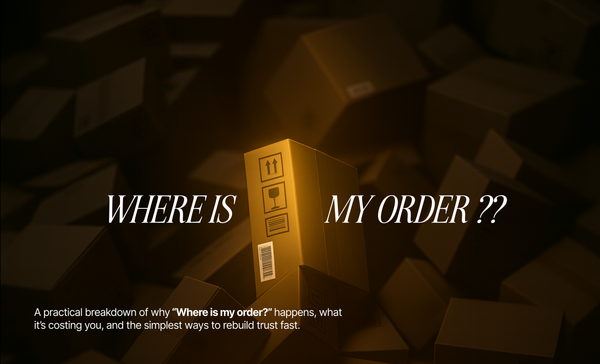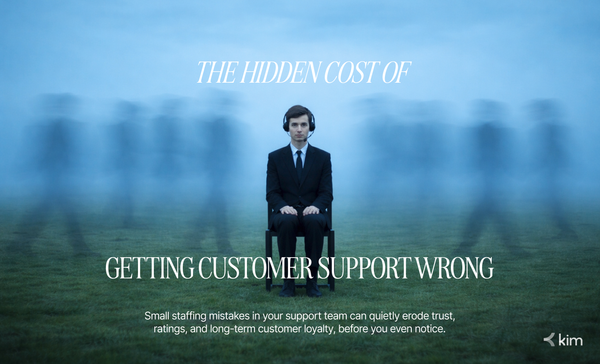Upwork vs BPOs: What Founders Should Really Consider When Hiring Remotely
Hiring remotely sounds simple until you actually start doing it. There are too many platforms, too many options, and not enough clarity on what works for your stage. Most founders start by choosing between two popular routes: freelancer marketplaces like Upwork or traditional BPOs. Both can work well, but each comes with limits that matter once your brand starts growing.
This guide breaks down the pros, cons, and the real trade-offs so you can pick the right model without guessing.
Understanding the Problem: Remote Hiring Is Not One-Size-Fits-All
The biggest challenge founders face isn’t finding talent. It’s finding predictable, reliable output. Freelancers on platforms like Upwork offer flexibility. BPOs offer structure. But both come with gaps that show up when you scale tasks or expect consistent delivery.
A Shopify survey showed that over 60% of small eCommerce brands struggle with maintaining consistent operational support as they grow. This can happen in hiring too. What works for five hours a week often collapses at fifty.
Upwork: Pros, Cons, and When It Works
Upwork is the easiest place to start hiring. You get access to thousands of freelancers across skills and price ranges. You can hire someone today, test them quickly, and get work done.
Pros of Upwork
a) Large talent pool
You can hire people from anywhere. This often means more options and more competitive pricing.
b) Flexible and cost-friendly
You can hire for a few hours or a one-time task, which makes it ideal for projects like fixing a landing page or setting up a workflow.
c) Fast testing
You can speak directly to freelancers, review samples, and assess fit within a day.
Cons of Upwork
a) Quality can be unpredictable
Profiles look great, but actual output varies a lot. Review systems help but do not guarantee consistency.
b) Time-consuming
You handle the entire process: screening, interviewing, onboarding, monitoring, and re-hiring if it doesn’t work out.
c) Inconsistent availability
Freelancers often juggle many clients. This can affect deadlines, response times, and reliability.
d) Short-term mindset
Many freelancers prefer task-based work, not ongoing accountability. This limits how much you can depend on them.
When Upwork works well
Upwork is great when you need:
• Short-term help
• Specialist input
• Project-based work
• Budget constraints
It’s less ideal when you need daily support or consistency.
BPOs: Pros, Cons, and What Founders Miss
BPOs (Business Process Outsourcing companies) give you structured teams. They are built for both short-term and long-term operational work. This can help when your workload becomes repetitive, predictable, and needs more than one person.
Pros of BPOs
a) More predictable output
You get managed teams, trained people, and clear deliverables.
b) Less effort for the founder
The BPO handles hiring, onboarding, monitoring, replacements, and training.
c) Better coverage
If one agent is sick or leaves, they replace them without you losing continuity.
Cons of BPOs
a) High minimum commitments
Most BPOs require multi-month contracts, fixed seats, and minimum hours.
b) Slow and heavy setup
Onboarding can take weeks, not days. Processes are rigid and not built for fast-growing brands.
c) Limited flexibility
It’s harder to scale up or down. If your work has seasonality, this becomes costly.
d) Not suited for small tasks
If you only need help for a few hours a day or only for one month, BPOs are not practical.
When BPOs work well
BPOs make sense when you need:
• large-scale support
• long-term operations
• predictable workflows
• a dedicated team
They are less ideal for brands that need flexibility or quick experiments.
The Gap Between Upwork and BPOs
Freelancer platforms are too light.
BPOs are too heavy at times.
Most brands today fall in the middle. They need reliable support but without the rigid contracts and slow setup. They want flexibility without sacrificing consistency. This is where newer hybrid models have emerged. These combine trained human support with AI tools and flexible pricing. They provide consistent output without the long lock-ins or the unpredictability of freelancers.
This approach works especially well for eCommerce founders who want reliable help but also want the freedom to scale week by week.
Key Takeaway
Upwork is flexible. BPOs are structured. Both work, but each has limits that become obvious as your needs change. If you need predictable work with flexibility, explore modern hybrid models that sit between the two. You get trained people, AI-backed workflows, fast setup, and no long-term commitments.
The best fit depends on how much work you have, how predictable it is, and how much control you want to keep.
FAQs
What is better for small brands, Upwork or a BPO?
Upwork works better for small or short-term needs. BPOs are better for long, repetitive tasks. If your needs change often, hybrid flexible support models may be a better fit.
Are BPOs too expensive for early-stage startups?
They can be. Most BPOs require fixed seats and contracts. This becomes costly if your workload varies or if you only need part-time help.
Can I hire one person through a BPO?
Most BPOs prefer multiple seats or full-time roles. If you need only one person or fewer hours, a freelancer platform or flexible hybrid solution works better.
Which option gives the fastest setup?
Upwork is fastest because you hire directly. Hybrid models are also quick since they pre-train people. BPOs usually take longer to set up.



